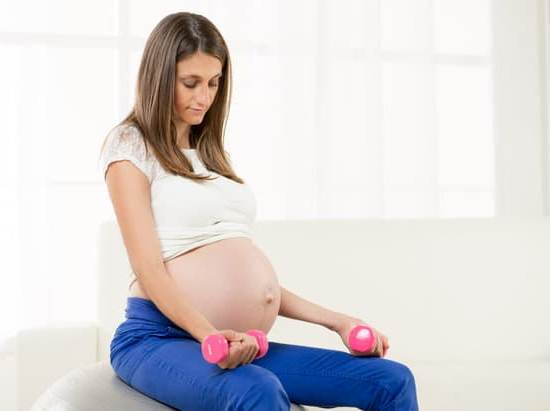Is loss of appetite a sign of pregnancy? Many women experience changes in their appetite during the early stages of pregnancy. Understanding these symptoms and their implications is crucial for expectant mothers. This article aims to explore the various signs and symptoms associated with pregnancy, particularly focusing on the significance of changes in appetite. From potential causes and concerns to managing these changes, we will delve into the impact of hormonal and physical changes on appetite during pregnancy.
Pregnancy is often accompanied by a range of physical and emotional changes, including fluctuations in appetite. It’s important for women to be aware of these early signs as they navigate through the first trimester. While some may experience increased hunger, others may notice a decrease in their appetite. Understanding how these changes can impact overall wellness is key to ensuring a healthy pregnancy journey.
In this article, we will address the potential causes and concerns surrounding loss of appetite during pregnancy, as well as provide tips for managing these changes. Additionally, we will discuss when seeking medical advice becomes necessary and offer guidance on promoting a healthy diet and appetite throughout the course of pregnancy. By embracing these shifts in appetite as part of the pregnancy journey, expectant mothers can better prepare for the months ahead.
Understanding Pregnancy Symptoms
During the first trimester of pregnancy, women may experience a wide range of symptoms as their bodies undergo significant hormonal and physical changes. Understanding these symptoms can help expectant mothers navigate this period with greater ease and preparedness.
Some common early signs of pregnancy include nausea, vomiting, fatigue, and breast tenderness. However, one symptom that often causes confusion is a loss of appetite. Many women wonder: is loss of appetite a sign of pregnancy? The answer is yes, it can be. Changes in hormone levels during pregnancy can affect a woman’s sense of smell and taste, leading to a decreased desire for certain foods or even food aversions.
Here are some important things to note about understanding pregnancy symptoms, particularly as it relates to changes in appetite:
- Nausea and vomiting often contribute to a reduced appetite during the first trimester
- Hormonal changes can impact the way food tastes and smells, influencing a woman’s desire to eat
- It is important for expectant mothers to pay attention to their overall nutrition and seek medical advice if they are experiencing severe or prolonged loss of appetite
Significance of Changes in Appetite During Pregnancy
During pregnancy, changes in appetite are a common occurrence for many women. It is normal to experience fluctuations in hunger and cravings as the body undergoes significant hormonal and physical changes. Loss of appetite can certainly be a sign of pregnancy, especially in the early stages when nausea and morning sickness are prevalent.
One of the most significant factors contributing to changes in appetite during pregnancy is the surge in hormones, particularly human chorionic gonadotropin (hCG) and progesterone. These hormonal changes can lead to nausea, vomiting, and aversions to certain foods, ultimately resulting in a decreased desire to eat. Additionally, the expanding uterus can exert pressure on the stomach, making it uncomfortable to consume larger meals.
It is important for expectant mothers to understand that loss of appetite during pregnancy is not uncommon and is usually temporary. However, if severe or prolonged loss of appetite is experienced, it may be cause for concern and should be addressed with a healthcare provider.
| Changes in Appetite During Pregnancy | Significance |
|---|---|
| Hormonal changes impact hunger and cravings | Common occurrence; usually temporary |
| Pressure from expanding uterus on stomach | Can make it uncomfortable to eat larger meals |
| Prolonged or severe loss of appetite | May be cause for concern; seek medical advice |
Loss of Appetite
While some women may experience an increased appetite during pregnancy, others may notice a decrease in their desire to eat. This leads to the question: is loss of appetite a sign of pregnancy? It certainly can be, and there are a variety of potential causes for this shift in eating habits.
Potential causes of loss of appetite during pregnancy include:
- Hormonal changes: Fluctuations in hormone levels, particularly in the early stages of pregnancy, can impact a woman’s sense of hunger and fullness.
- Nausea and vomiting: Many women experience morning sickness during the first trimester, which can make the idea of food unappealing and result in a decreased appetite.
- Emotional and psychological factors: Some women may feel anxious or stressed about their pregnancy, leading to a lack of appetite.
- Physical discomfort: As the baby grows, it can put pressure on the stomach and intestines, making it uncomfortable to eat large meals.
While loss of appetite is common during pregnancy, it is important to be mindful of potential concerns. If the lack of appetite is severe or persistent, it can lead to nutritional deficiencies and inadequate weight gain, which could impact both the mother and baby’s health. It is essential for pregnant women to monitor their eating habits and address any significant changes with their healthcare provider.
Hormonal and Physical Changes Impacting Appetite
During pregnancy, a woman’s body goes through significant hormonal and physical changes that can impact her appetite. These changes can vary from woman to woman, but it’s common for women to experience shifts in their eating habits during the first trimester. Understanding the underlying factors that contribute to these changes can help expectant mothers navigate their new relationship with food.
Hormonal Changes
One of the primary reasons for changes in appetite during pregnancy is the surge in hormones, such as estrogen and progesterone. These hormones play a crucial role in preparing the body for pregnancy and sustaining it throughout the term. However, they can also affect the part of the brain that regulates appetite, leading to fluctuations in hunger levels. Some women may find themselves experiencing increased cravings, while others may struggle with a decreased appetite.
Physical Changes
In addition to hormonal influences, there are also physical changes that impact appetite during pregnancy. As the uterus grows and becomes more crowded, it can put pressure on the stomach and intestines, leading to feelings of fullness even when only small amounts of food have been consumed. This can make it challenging for pregnant women to eat larger meals or maintain their usual eating patterns.
Metabolic Changes
Pregnancy also brings about metabolic changes as the body works harder to support the growing fetus. This increased demand for energy may result in fluctuations in blood sugar levels, contributing to feelings of hunger or a loss of appetite at different times throughout the day.
Understanding these hormonal, physical, and metabolic changes is key to managing shifts in appetite during pregnancy. By recognizing these normal fluctuations as part of the journey to motherhood, women can adapt their eating habits and find ways to nourish themselves and their growing baby despite any challenges related to appetite.
How to Manage Changes in Appetite During Pregnancy
During pregnancy, many women experience changes in their appetite, which can include either an increase or a decreased desire to eat. For those who are concerned about a loss of appetite being a sign of pregnancy, it’s important to understand that this is indeed a common symptom for some women. The hormonal and physical changes that occur during pregnancy can have a significant impact on your appetite and eating habits.
If you are experiencing a loss of appetite during pregnancy, there are several ways to manage this change and ensure that you are still getting the proper nutrition for both you and your baby. It is essential to focus on consuming nutrient-dense foods, even if you may not feel like eating large meals. Eating smaller, more frequent meals throughout the day can help maintain your energy levels and provide essential nutrients without overwhelming you with large portions.
In addition to adjusting your eating habits, it’s also important to stay properly hydrated during pregnancy. Even if you may not feel hungry, drinking plenty of water can help prevent dehydration and support overall health. It may also be beneficial to speak with your healthcare provider about any concerns regarding your appetite during pregnancy and make any necessary adjustments to ensure both your health and the health of your growing baby.
When to Seek Medical Advice for Loss of Appetite During Pregnancy
It is normal for pregnant women to experience changes in their appetite, but when does this loss of appetite become a cause for concern? While some expectant mothers may find themselves eating more during pregnancy, others may notice a decrease in their appetite. This raises the question: is loss of appetite a sign of pregnancy complications?
When experiencing a loss of appetite during pregnancy, it is important to monitor any other accompanying symptoms. If the lack of interest in food is causing significant weight loss or affecting daily functioning, medical advice should be sought. In some cases, a diminished appetite could be indicative of an underlying issue such as hyperemesis gravidarum, a severe form of morning sickness that requires medical attention.
In addition, if the loss of appetite is abrupt and persistent, it may also be linked to mental health concerns such as anxiety or depression. It is essential for pregnant individuals to address these symptoms and seek assistance from healthcare professionals who can provide the necessary support and guidance throughout their pregnancy journey.
Tips for Promoting a Healthy Diet and Appetite During Pregnancy
During pregnancy, maintaining a healthy diet and appetite is crucial for the well-being of both the mother and the developing baby. Here are some tips to promote a healthy diet and appetite during pregnancy.
Eating Small, Frequent Meals
One way to manage changes in appetite during pregnancy is by consuming small, frequent meals throughout the day. This can help prevent feelings of nausea or discomfort that may arise from eating larger meals. Including nutrient-dense snacks such as fruits, vegetables, and nuts can also provide essential vitamins and minerals to support the health of both mother and baby.
Stay Hydrated
Drinking an adequate amount of water is important for maintaining overall health, but especially during pregnancy. Dehydration can exacerbate feelings of fatigue and contribute to a lack of appetite. It’s recommended for pregnant women to aim for at least 8-10 cups of water per day, or more if they are physically active or live in a hot climate.
Listen to Your Body
Pregnancy can bring about various food aversions and cravings, so it’s important for expectant mothers to listen to their bodies and honor their cravings within reason. Making mindful choices about what foods sound appealing while ensuring they still meet nutritional needs is key. Additionally, seeking out professional guidance from a healthcare provider or nutritionist can offer personalized advice on how to maintain a balanced diet despite changes in appetite.
By implementing these tips, expectant mothers can better navigate changes in appetite during pregnancy while promoting overall health for themselves and their growing baby.
Conclusion
As expectant mothers navigate the early signs and symptoms of pregnancy, changes in appetite can be a significant factor that may raise concerns. While some women experience an increase in appetite, others may notice a decrease or complete loss of interest in food. This raises the question – is loss of appetite a sign of pregnancy?
The answer is yes, it can be. However, it’s important for women to understand that these changes are normal and often temporary as their body adjusts to the demands of pregnancy.
Pregnancy brings about a myriad of physical and hormonal changes that can impact a woman’s appetite. Nausea, vomiting, and aversions to certain foods are all common experiences during the first trimester, which may lead to a reduced desire to eat. Hormonal fluctuations also play a role in altering taste preferences and overall hunger levels. Understanding these factors can help pregnant women embrace the changes in their appetite as part of their unique pregnancy journey.
While changes in appetite during pregnancy are often considered normal, there may be instances where it is essential to seek medical advice. Persistent loss of appetite or extreme difficulty in keeping food down could potentially indicate other underlying issues that need attention.
It’s crucial for expectant mothers to communicate any concerning symptoms with their healthcare provider to ensure they receive proper support and guidance throughout their pregnancy journey. By staying informed and seeking appropriate care when needed, women can better manage these fluctuations in appetite while nurturing both themselves and their growing baby.
Frequently Asked Questions
When Does Loss of Appetite Start in Pregnancy?
The loss of appetite in pregnancy can start as early as the first trimester, typically around 6-8 weeks. Hormonal changes and nausea can contribute to this decrease in appetite.
What Are One Week Pregnancy Symptoms?
During the first week of pregnancy, symptoms may include fatigue, breast tenderness, mild cramping, and a heightened sense of smell. Some women may also experience light spotting.
Should I Force Myself to Eat if I Have No Appetite While Pregnant?
It is important to listen to your body during pregnancy. While it’s essential to nourish yourself and your baby, forcing yourself to eat when you have no appetite may exacerbate nausea or discomfort. Instead, focus on small, frequent meals and stay hydrated. If the loss of appetite persists, consult with your healthcare provider for guidance.

Welcome to my fertility blog. This is a space where I will be sharing my experiences as I navigate through the world of fertility treatments, as well as provide information and resources about fertility and pregnancy.





